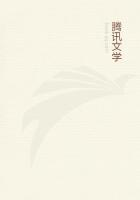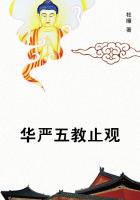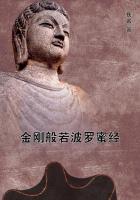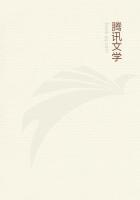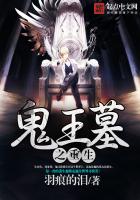Sir, we must be guided by some rule in this grave proceeding--something more certain than an impossibility to arraign the President for a specific crime--and when the gentleman from Massachusetts, in commenting on one of the alleged offenses of the President, that we could not arraign him for the specific crime, he disclosed the weakness of the case we are now considering. If we cannot arraign the President for a specific crime, for what are we to proceed against him? For a bundle of generalities such as we have in the volume of testimony reported by the committee to the House in this case? If we cannot state upon paper a specific crime, how are we to carry this case to the Senate for trial?
At the close of his speech, Mr. Wilson moved to lay the subject of impeachment on the table, and the yeas and nays were ordered.
Several motions were then made--to adjourn, to adjourn to a day certain, etc.--which with roll calls practically consumed the day, and the motion of Mr. Wilson went over.
The next day, Dec. 7th, the question again came up in its order, and after several unsuccessful attempts to procure a vote on Mr.
Wilson's motion to lay the Impeachment Resolution on the table, Mr. Wilson, by agreement, withdrew his motion, and called for the yeas and nays on the adoption of the resolution:
That Andrew Johnson, President of the United States, be impeached for high crimes and misdemeanors.
The yeas and nays were ordered, and the vote was yeas 57, nays 108.
So the resolution to impeach the President was rejected by the very emphatic vote of 67 to 108--nearly two to one--and by a House two-thirds Republican.
So ended the first effort to impeach the President--the first formal action to that end having been taken on January 7, 1867, and the final vote at the close, and its abandonment, December 7, 1867.
For eleven months the overwhelming Republican majority of the House had been vigorously active in its search for evidence of criminality on the part of the President that would warrant the basing of an impeachment. No effort was left untried--no resource that promised a possible hope of successful exploitation was neglected. Republican partisans were set to the work of sleuth-hounds in the search for testimony in maintenance of the charges preferred, and an ever ready partisan press teemed from the beginning to the end of that time with animadversions upon Mr. Johnson's administration and denunciation of his alleged desertion of Mr. Lincoln's plan of restoration, of treachery to the party that had elected him, and a demand for his impeachment.
To be lukewarm in that controversy, or even to fail to join in the popular denunciation of Mr. Johnson was to put one's self at once under suspicion with the great mass of the dominant party, and without the pale of its consideration.
For eleven months the country was kept in the throes of partisan turmoil--and for what? Simply to depose a President who had disappointed the partisan and personal expectations and schemes of a rule or ruin faction which was able, under the peculiar conditions of the time, to subordinate to its purposes a large proportion of the dominant party of that day.
The following are the material portions of the testimony taken by the House Committee on the Judiciary under authority of the resolutions passed by the House of Representatives on March 7, 1867, for the impeachment of Andrew Johnson.
Eighty-nine witnesses were summoned before the committee. All of them were rigidly examined, and several of them were called and examined the second and third times. Their testimony fills more than twelve hundred octavo pages of print.
The first witness was Gen. L. C. Baker, of the War Department.
His testimony related principally to a certain letter alleged to have been written by Mr. Johnson, in 1864.
The first question propounded to him by Mr. Ashley, was as follows:
I wish you to state to the committee the contents, as nearly as you can, of a letter which you have in your possession, written by Andrew Johnson, some time in the early part of 1864, to a Southern man, giving information as to the troops about the Capitol and elsewhere, and advice to Jefferson Davis. State where that letter is, and give the contents as nearly as you can, the history of it.
Mr. Baker answered that he knew there was a letter of that kind, purporting to have been written by Andrew Johnson, when he was acting Governor of Tennessee. That the letter was dated at Nashville and directed to Jefferson Davis, and related to some declared policy that had been adopted by the Confederacy--that the letter was being used to secure an appointment--that reference was made to troops, but nothing about localities where stationed, or numbers, and nothing about shipment of armor, and that the letter was stolen from Andrew Johnson's table and never sent.
The question was then asked of the witness by Mr. Ashley:
State whether the whole import of the letter written by Mr.
Johnson, was not to turn the whole power which he possessed in Tennessee, in a certain contingency, over to the rebel cause?
Answer--No. I did not have that opinion of the letter exactly.
From what I recollect of it, the thing was that he was ****** a proposition ****** suggestions as to what their policy should be.
Ques.--And if they accepted it?
Ans.--If they accepted it, my impression was that he was going with them.
Ques.--With the rebels?
Ans.--Yes sir.
Question by the Chairman.--If there are any other letters that you have seen of Mr. Johnson's written by him to any person connected with the Confederate Government, or proposing to change the Administration of the Government in their favor after he became President, or anything of a public nature affecting the interests of the United States, please state it and state all you know about such letters.
Ans.--I do not know of any letters of that character--or of any other letters.

